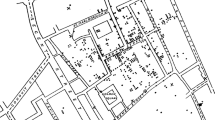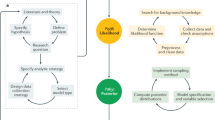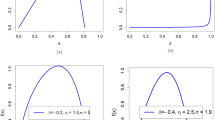Abstract
IN discussions on statistical tests with various Continental statisticians and users of statistical methods, I have been struck by their universal mistrust of modern statistical tests as developed by Pearson, Fisher and other workers in Great Britain. I have come to the conclusion that the main reason for this attitude is a perfectly sound reason, namely, that a test is used by many workers in Great Britain as a simultaneous test of the untruth of one hypothesis and the truth of the reverse hypothesis. There is in fact a large region in the distribution of the criterion for which neither a hypothesis nor its reverse can be assumed to be true. One or the other is true, of course, but the test cannot help us in coming to a decision on the matter. Judgment must be reserved. For example, we may wish to test whether a given sample differs significantly from a random sample from a normal population. Applying the 2 test, after finding the best fitting normal distribution, and using p = 0.05, say, as the level of significance, we may find that our sample is just not significantly abnormal.
This is a preview of subscription content, access via your institution
Access options
Subscribe to this journal
Receive 51 print issues and online access
$199.00 per year
only $3.90 per issue
Buy this article
- Purchase on Springer Link
- Instant access to full article PDF
Prices may be subject to local taxes which are calculated during checkout
Similar content being viewed by others
Author information
Authors and Affiliations
Rights and permissions
About this article
Cite this article
BUCHANAN-WOLLASTON, H. Statistical Tests. Nature 136, 182–183 (1935). https://doi.org/10.1038/136182b0
Issue Date:
DOI: https://doi.org/10.1038/136182b0
Comments
By submitting a comment you agree to abide by our Terms and Community Guidelines. If you find something abusive or that does not comply with our terms or guidelines please flag it as inappropriate.



